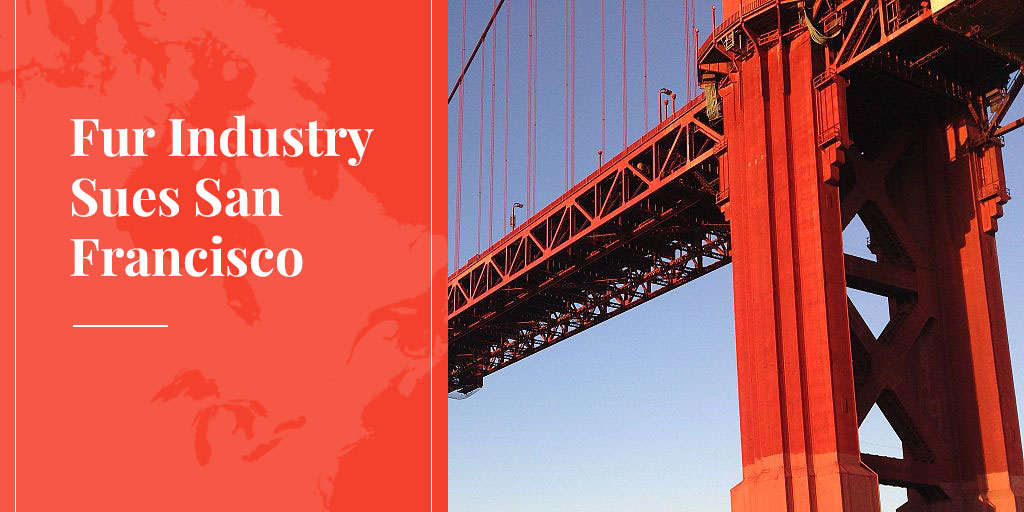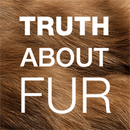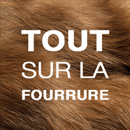
City’s Fur Ban an “Unconstitutional Attack on Consumer Rights”
The International Fur Federation (IFF) has launched litigation to prevent San Francisco from implementing a city ordinance banning the sale of fur. The ordinance, passed in 2018, gave existing department stores until Jan. 1, 2020, to sell off their remaining fur stock and prohibits the sale of newly manufactured fur coats, hats, gloves, fur-trimmed parkas, and other products.
The lawsuit, filed on January 13, argues San Francisco has “no legitimate local interest to ban fur sales” and that the ordinance is an “unconstitutional restriction on interstate and foreign commerce”.
“In an attempt to legislate morality, Supervisor Katy Tang, sponsor of the ban, stated that businesses ‘need to get with the times.’ Yet the current times do not allow for ignoring the Constitution’s prohibition on restraining interstate commerce,” said Mike Brown, the IFF’s CEO for North America.
“Proponents of San Francisco’s fur ban, including the radical animal rights group PETA, also want the sale of leather, wool, and other animal products to be banned,” said Brown.
Contrary to San Francisco city council claims, fur products remain popular with consumers in that city and nationwide. Fur sales in San Francisco alone are estimated to be $40 million annually. Globally, the fur industry is a $23 billion business. A 2019 Gallup poll also confirmed that a majority of Americans believe that it is morally acceptable to wear fur.
While fur producers worldwide are complying with the humane standards under the IFF’s new FurMark program, San Francisco’s fur ban is so extreme that it blocks even humanely certified products. FurMark is a certification program to provide consumers with assurance about animal welfare and sustainability standards in place for the production of fur products in North America and Europe.
The San Francisco fur ban is completely arbitrary and creates a troubling precedent for other responsibly produced animal products. “If this law is allowed to stand, there’s nothing stopping San Francisco from banning wool, leather, meat, or other products that a small group of activists don’t approve of,” said Mark Oaten, CEO of the IFF.
“Californians should have no fewer rights than residents of other states. They should be free to buy legally produced goods unless there is a public safety or health issue – which does not exist here,” said Oaten.
Counter-Productive in Fight Against Pollution
Along with harming local businesses, San Francisco’s fur ban will have unintended consequences that damage California’s efforts to fight pollution, because the “fake fur” alternatives to natural fur are made with petroleum. Research is showing that these synthetics shed microfibers into the waterways when they are cleaned. Plastic microfibers are now even being found in marine life. A single garment can shed 100,000 microfibers in the wash.
“Plastic microfibers are a leading cause of ocean pollution, in San Francisco Bay and the Great Pacific Garbage Patch. The National Science Foundation recently announced that microplastics may be 1 million times more prevalent than previously estimated,” said Oaten.
SEE ALSO: Global Campaign Highlights Benefits of Real Fur Over Plastic Fake Fur. Truth About Fur.
California Faces Flurry of Legal Challenges
The IFF lawsuit is the latest in a string of legal challenges to California’s attempt to legislate “morality”. The state of Louisiana and a coalition of members of the alligator/crocodile supply chain have sued California over its ban on alligator and crocodile products, which was slated to take effect Jan. 1. As a result, a temporary stay was imposed on the implementation of this ban.
Recently, California was also sued by the American Farm Bureau Federation and the National Pork Producers Council over the state’s sweeping ban on the sale of conventionally produced pork products, legislation slated to take effect in 2022. Litigation against California’s foie gras ban is also ongoing in federal court.
SEE ALSO: Why a Ban on Fur and Foie Gras Should Matter to Ranchers.
The fur industry’s legal challenge zeroes in on the constitutionality of state and municipal fur bans in California under the Commerce Clause of the US Constitution. Additionally, legal experts believe US states cannot arbitrarily ban products from foreign countries from being sold under free-trade treaties such as the North American Free Trade Agreement. The IFF lawsuit was filed in the US District Court for the Northern District of California. Los Angeles and the California state legislature also passed fur bans in 2019, but they do not take effect for several years.
“California’s fur bans are an arbitrary assault on consumer choice and retail businesses,” said Brown. “These laws ban a responsibly and legally produced natural product from the marketplace simply because certain special interests don’t like the product. This is a startling precedent, to impose the morality of specific groups onto all citizens. There is no legitimate issue of public health and safety behind fur bans – simply a belief by some lawmakers that they don’t like fur, and therefore no one should be allowed to buy it.”
SEE ALSO: 6 Reasons Why Banning Fur Sales Is a Very Bad Idea. Truth About Fur.
***
To learn more about donating to Truth About Fur, click here.











Easy fix ! REFUSE TO COMPLY !!!!